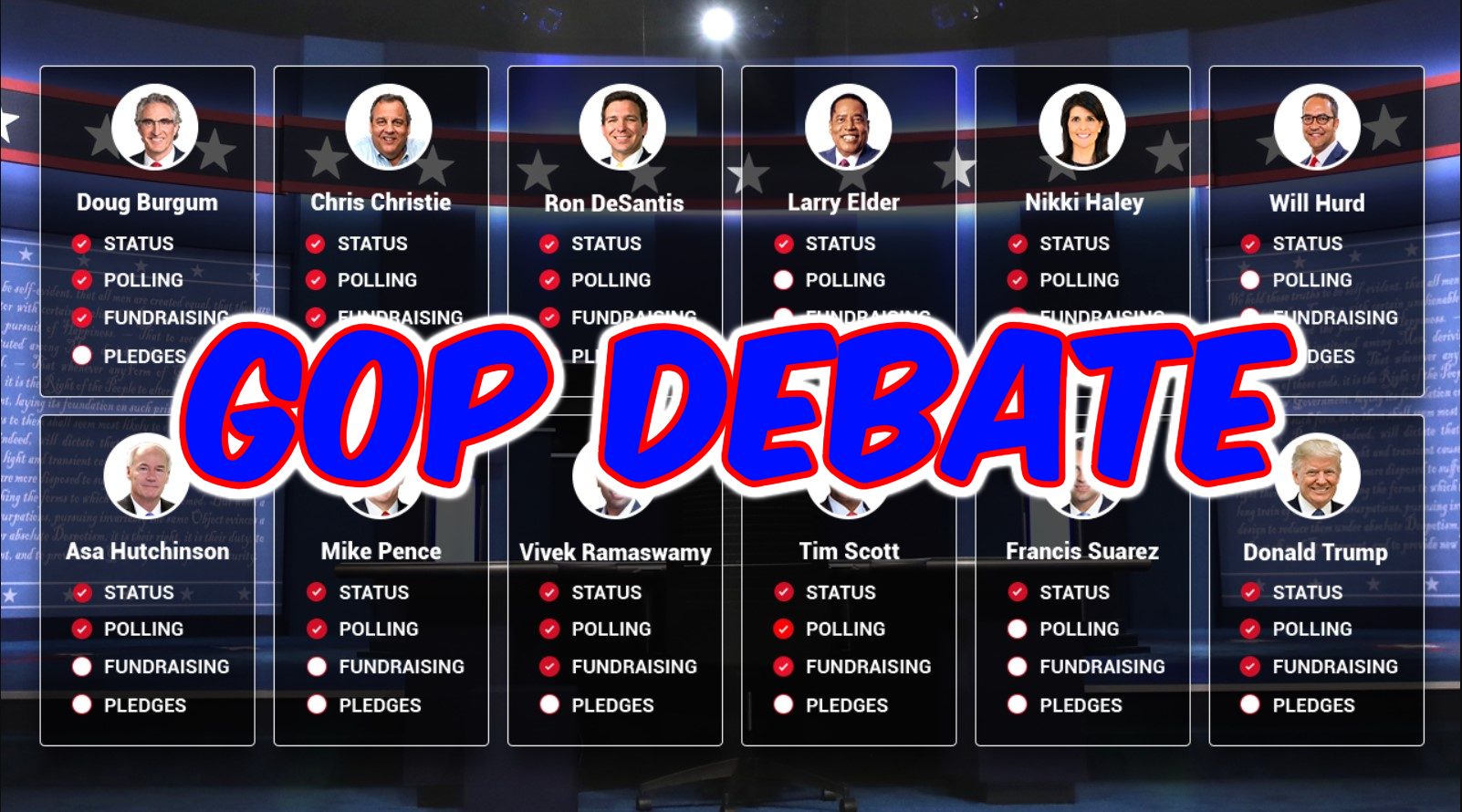The anticipation is growing as the first Republican presidential primary debate approaches. With the stage set to host seven candidates vying for the GOP nomination, the Republican National Committee (RNC) has laid out the polling and fundraising criteria that candidates must meet to secure a spot on stage. In this article, we will explore the qualifications required, the candidates who have met them, and the significance of this debate.
To earn a spot on the stage at the first primary debate, candidates must meet both polling and fundraising criteria set by the RNC. The polling requirements involve reaching 1% in three national polls or 1% in two national polls and two state-specific polls from the early voting states of Iowa, New Hampshire, South Carolina, and Nevada. These polls must be conducted on or after July 1 and recognized by the RNC.
In addition to the polling criteria, candidates must also demonstrate their fundraising prowess. They must have 40,000 unique donors to their campaign committee, with at least 200 unique donors per state or territory in 20+ states and/or territories.
Candidates Who Have Qualified
Seven Republican candidates have successfully met both the polling and fundraising thresholds and secured their place on the debate stage. Let’s take a closer look at these candidates:
1. North Dakota Gov. Doug Burgum
North Dakota Governor Doug Burgum has emerged as a long-shot candidate for the GOP nomination. Despite the odds stacked against him, Burgum’s “completely legal” hack allowed him to secure a spot in the debate. His innovative approach and determination make him a candidate to watch.
2. Former New Jersey Gov. Chris Christie
Former New Jersey Governor Chris Christie brings years of experience to the table. Known for his strong leadership and straightforward style, Christie’s presence in the debate will undoubtedly make an impact.
3. Florida Gov. Ron DeSantis
Florida Governor Ron DeSantis has garnered national attention for his conservative policies and handling of the COVID-19 pandemic. With a strong base of support, DeSantis is poised to make a compelling case for his candidacy during the debate.
4. Former South Carolina Gov. Nikki Haley
Former South Carolina Governor Nikki Haley brings a unique perspective to the debate stage. As a woman of Indian descent, Haley’s diverse background and extensive political experience make her a formidable candidate.
5. Entrepreneur Vivek Ramaswamy
Entrepreneur Vivek Ramaswamy’s entrance into the political arena has been met with intrigue. With a successful business background and a fresh perspective, Ramaswamy aims to shake up the race and offer innovative solutions to the nation’s challenges.
6. South Carolina Sen. Tim Scott
South Carolina Senator Tim Scott’s rise in the Republican Party has been meteoric. As the only African American Republican senator, Scott’s unique perspective and conservative values resonate with many within the party. His inclusion in the debate lineup is a testament to his growing influence.
7. Former President Donald Trump
Former President Donald Trump’s presence on the debate stage is highly anticipated. As a key figure in Republican politics, Trump’s influence on the party remains significant. His participation in the debate will undoubtedly shape the conversation and set the tone for the race.
Candidates Who Have Met Polling Requirements
While some candidates have met the polling requirements, they have yet to fulfill the fundraising criteria set by the RNC. These candidates include:
1. Former Arkansas Gov. Asa Hutchinson
Former Arkansas Governor Asa Hutchinson’s experience in state governance has positioned him as a viable candidate. Although he hasn’t met the fundraising threshold, his polling numbers indicate significant support among Republican voters.
2. Former Vice President Mike Pence
Former Vice President Mike Pence’s potential entry into the race has generated considerable speculation. While he has not met the fundraising requirements, his national recognition and conservative track record may boost his chances in the upcoming primaries.
The first GOP presidential debate holds immense significance for candidates and the Republican Party as a whole. The debate provides an opportunity for candidates to shape the narrative surrounding their campaigns. A strong performance can generate positive media coverage and help candidates differentiate themselves from their competitors.
A standout performance in the debate can propel a candidate’s campaign forward, generating momentum and increasing their chances of securing the nomination. Conversely, a lackluster performance could hinder their progress and force them to reevaluate their strategy. Debates have a significant impact on voter perception and can sway undecided voters. Candidates who effectively communicate their message and connect with voters during the debate have a greater chance of winning their support.


Leave a Comment